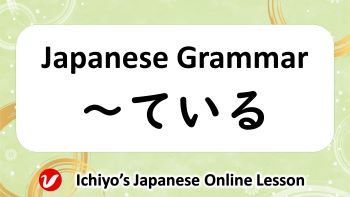
We will teach you the grammar and uses of the phrase「ている」. It has several uses, and we have seen many learners who do not know them. Please learn about「ている」on this page.
Structure of「ている」
「ている」is used in this structure.
Examples:
| Dictionary Form | て Form + いる | Dictionary Form | て Form + いる | |
| Key Word | 走る | 走っている | 寝る | 寝ている |
| Romaji Reading | hashiru | hashitte iru | neru | nete iru |
| English Meaning | run | N/A | sleep | N/A |
About the English meaning of「て Form + いる」:
We do not know the exact meaning without knowing the sentence. Therefore, I wrote “N/A.”
| Dictionary Form | て Form + いる | Dictionary Form | て Form + いる | |
| Key Word | 太る | 太っている | する | している |
| Romaji Reading | futoru | futotte iru | suru | shite iru |
| English Meaning | get fat | N/A | do | N/A |
| Dictionary Form | て Form + いる | Dictionary Form | て Form + いる | |
| Key Word | 乗る | 乗っている | 勉強する | 勉強している |
| Romaji Reading | noru | notte iru | benkyō suru | benkyō shite iru |
| English Meaning | ride | N/A | study | N/A |
The Polite Form of「ている」
「ています」is the polite form of「ている」.
| Plain Form | Polite Form | Plain Form | Polite Form | |
| Key Word | 走っている | 走っています | 寝ている | 寝ています |
| Romaji Reading | hashitte iru | hashitte imasu | nete iru | nete imasu |
| Plain Form | Polite Form | Plain Form | Polite Form | |
| Key Word | 太っている | 太っています | している | しています |
| Romaji Reading | futotte iru | futotte imasu | shite iru | shite imasu |
Uses of「ている」
Usage 1: For What’s Happening Now (Progress)
「Verb in て Form + いる」indicates something that’s happening at the time you are speaking, like we use “-ing” in English.
兄は今、勉強している。My older brother is studying now. (Plain Form)
The key word is「今(いま) 」which means “now” in this sentence.
今、電車に乗っている。I’m riding a train now. (Plain Form)
マラソン選手が走っている。A marathon runner is running. (Plain Form)
Usage 2: For What’s Been Happening
「Verb in て Form + いる」indicates something that has been continuously happening up until the time you are talking. This is like “have been –ing” in English.
三年以上日本語を勉強している。I have been studying Japanese over three years. (Plain Form)
日本に六年間住んでいる。I have been living in Japan for six years. (Plain Form)
Usage 3: For Habits and Regular Occurrences
「Verb in て Form + いる」indicates habits or regular events. It describes what you are doing in general, not just at a particular time.
毎日電車に乗っている。I take the train every day. (Plain Form)
The key word in this sentence is「毎日」which means “every day.” The action「乗っている」indicates a regular thing.
Usage 4: For Result of State/Condition
「Verb in て Form + いる」indicates an ongoing situation that happened in the past.
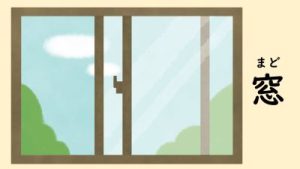
For example, someone opened the window at some point, and this window is still open. In this case, we use「ている」.
窓が開いている。The window is open. (Plain Form)
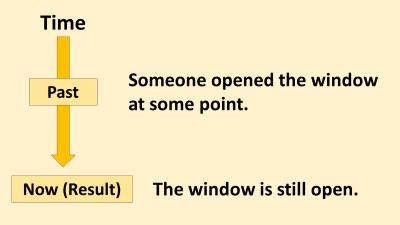
| Dictionary Form | て Form + いる |
| 開く | 開いている |
| aku | aite iru |
| open | is open |
あの人は太っている。That person is fat. (Plain Form)
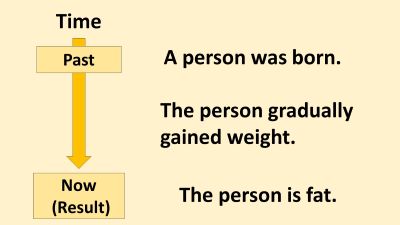
The state of “being fat” does not happen suddenly. The person gained weight in the past.「ている」is used to describe the state that results from the change and is ongoing. Therefore, we use「太っている」not「太る」.
この時計は壊れている。This watch/clock is broken.
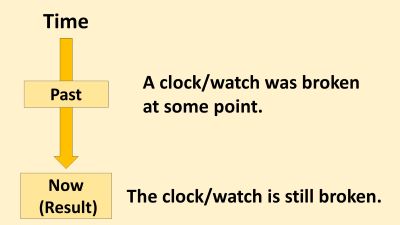
中居さんは結婚している。Nakai-san is married.
木が折れている。The tree is broken.
友達に教科書を貸している。I lend my textbook to a friend.
Usage 5: Career, Experience, or Record
「ている」is used when indicating career, experience, or record.
私はこの試験に合格している。I have passed this exam.
「ている」is used when we explain experiences. Therefore, we use「合格している」.
| Plain Form (Dictionary Form) | Plain Form | て Form + いる | |
| Key Word | 合格する | 合格した | 合格している |
| Romaji Reading | gōkaku suru | gōkaku shita | gōkaku shite iru |
| English Meaning | pass an exam | passed an exam | N/A |
サッカーの試合で日本はブラジルに負けている。Japan lost to Brazil in a soccer match.
| Plain Form (Dictionary Form) | Plain Form | て Form + いる | |
| Key Word | 負ける | 負けた | 負けている |
| Romaji Reading | makeru | maketa | makete iru |
| English Meaning | lose | lost | N/A |
When we talk about records, we use「ている」. Therefore,「負けている」is used in this sentence.
太田さんは北京オリンピックに出場している。Ota-san participated in the Beijing Olympics.
エジソンは白熱電球を発明している。Edison invented the incandescent light bulb.
Key Points On「ている」
「ている」has several uses.
・For what’s happening now (Progress) ・For what’s been happening
・For habits and regular occurrences ・For result of state/condition
・For career, experience, or record
When you do not understand Japanese, please use our “Daily Japanese Mail Support” service. We will teach you Japanese until you understand it.